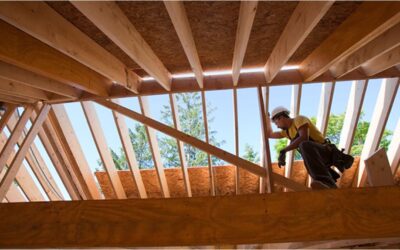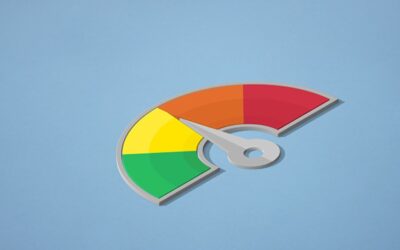There’s More to a Bubble Than Rising Home Prices

What truly causes a housing bubble and the inevitable crash? For the best explanation, let’s go to a person who correctly called the last housing bubble – a year before it happened.
“A bubble requires both overvaluation based on fundamentals and speculation. It is natural to focus on an asset’s fundamental value, but the real key for detecting a bubble is speculation…Speculation tends to chase appreciating assets, and then speculation begets more speculation, until finally, for some reason that will become obvious to all in hindsight, the ‘bubble’ bursts.
I have taken to calling the housing market a ‘bubble’.”
– Bill McBride of Calculated Risk calling the bubble back in April 2005
Where do we stand today regarding speculation?
There are two measurements that are used to determine the speculation in a housing market:
1. The number of homes purchased by an investor and
2. The number of homes being flipped (resold within a twelve-month period)
As compared to 2005, investor purchases are down dramatically (from 23% to 13%) and so is flipping (from 8.2% to 5.7%). McBride explains:
“There is currently some flipping activity, but this is more the normal type of flipping (buy, improve and then sell). Back in 2005, people were just buying homes and letting them sit vacant – and then selling without significant improvements. Classic speculation.”
What are the experts saying about speculation in today’s market?
DSNews recently ran an article which asked two economists to compare the speculation in today’s market to that in 2005-2007. Here is what they said:
Dr. Eddie Seiler, Chief Housing Economist at Summit Consulting:
“The speculative ‘flipping mania’ of 2006 is absent from most metro areas.”
Tian Liu, Chief Economist of Genworth Mortgage Insurance:
“The nature of housing demand is different as well, with more potential homeowners and far fewer speculators in the housing market compared to the 2005-2007 period.”
And what does McBride, who called the last housing bubble, think about today’s real estate market?
Sixty days ago, he explained:
“In 2005, people were just buying homes and letting them sit vacant – and then selling without significant improvements. Classic speculation. And even more dangerous during the bubble was the excessive use of leverage (all those poor-quality loans). Currently lending standards are decent, and loan quality is excellent…
I wouldn’t call house prices a bubble – and I don’t expect house prices to decline nationally like during the bust.”
Bottom Line
Speculation is a major element of the housing bubble formula. Right now, there are not elevated percentages of investors and house flippers. Therefore, there is not an elevated rate of speculation.
To view original article, please visit Keeping Current Matters.
Today’s Housing Inventory Is a Sweet Spot for Sellers
Buyers have fewer choices now than they did in more normal years, and that’s continuing to impact statistics in the housing market.
Evaluating Your Wants and Needs as a Homebuyer Matters More Today
So, if you’re looking to buy a home, take some time to consider what’s truly essential for you in your next house.
Where Will You Go If You Sell? Newly Built Homes Might Be the Answer.
New home construction is up and is becoming an increasingly significant part of the housing inventory.
Why Homeownership Wins in the Long Run
It’s important to think about the long-term benefits of homeownership when deciding whether or not to buy a home.
The True Cost of Selling Your House on Your Own
When it comes to selling your most valuable asset, consider the invaluable support that a real estate agent can provide.
What Homebuyers Need To Know About Credit Scores
Your credit score is one of the most important factors lenders consider when you apply for a mortgage.
Why the Median Home Price Is Meaningless in Today’s Market
Using the median home price as a gauge of what’s happening with home values isn’t worthwhile right now.
Saving for a Down Payment? Here’s What You Need To Know.
One of the biggest misconceptions among housing consumers is what the typical down payment is.
Why Buying or Selling a Home Helps the Economy and Your Community
If you’re thinking about buying or selling a house, it’s important to know that it doesn’t just affect your life, but also your community.
Your Needs Matter More Than Today’s Mortgage Rates
If you’re thinking about selling your house right now, chances are it’s because something in your life has changed.









